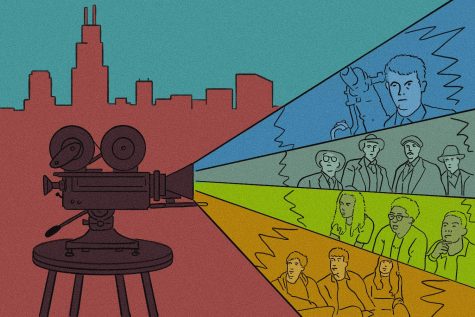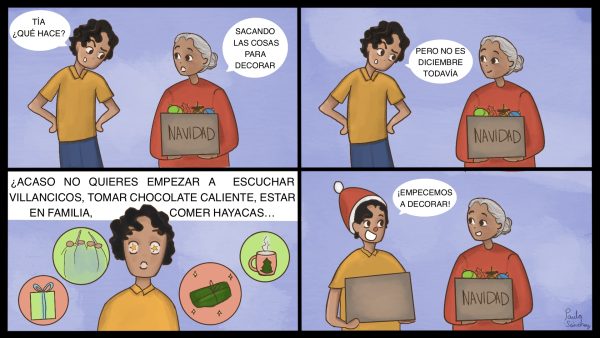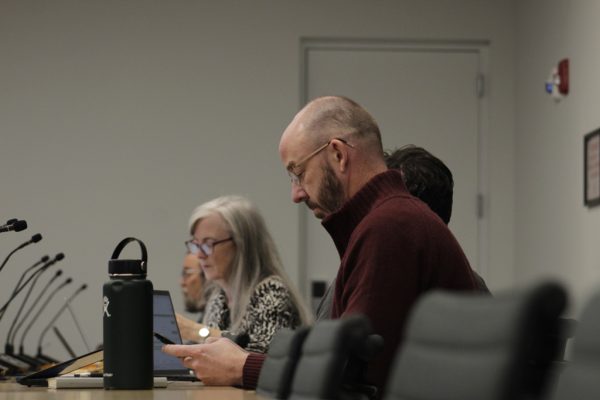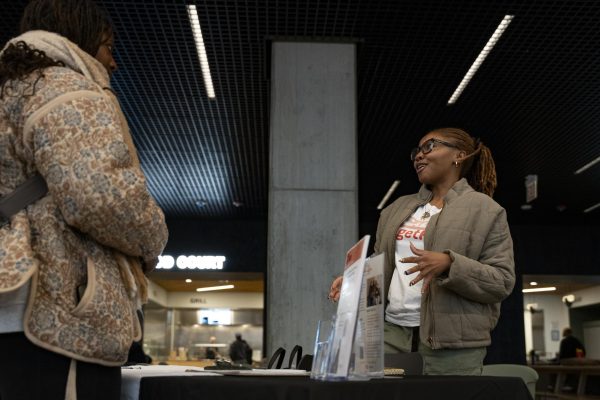5 movies that scream Chicago (and aren’t ‘Ferris Bueller’s Day Off’)
October 17, 2022

Chicago has been a common setting for movies for decades, being the home for a diverse list of stories ranging from uplifting comedies to documentaries.
Often these stories do not use Chicago just as a backdrop; they tell stories of the city through politics, culture and environment.
Here are five movies that can tell you a little more about the city.
Medium Cool
“Medium Cool,” written and directed by Haskell Wexler, takes place in Chicago during the 1968 Democratic National Convention, which was a time filled with tension between anti-war protesters and the Chicago Police Department. The nominees running for president and vice president respectively that year were then-Vice President Hubert Humphrey and then-Sen. Edmund Muskie.
“Medium Cool” is a film that mixes fictional storytelling with documentary, fictionalizing characters but telling an accurate story of the 1968 Democratic National Convention by using actual footage of the real protests.
The film follows John Cassellis, played by Robert Forster, a television news cameraman who captures images of police brutality at the DNC protest.
Jeff Spitz, an associate professor in the Cinema and Television Arts Department, teaches “Big Chicago: Chicago Film History,” a class that depicts Chicago history through cinema, and said he likes to show his students this film as a way to learn about the protests.
“That is a film that combines documentary evidence with an actress, and a real intention, to question what is reality,” Spitz said. “And that thin line between nonfiction and fiction is crossed back and forth in the making of the film intentionally.”
The Guardian’s review of the film by Philip French touches on the film’s political statement.
“‘Medium Cool’ encapsulates the divisive issues of race and poverty that remain as urgent today as they did in 1968,” said French in his review, which was published in 2015.
“Medium Cool” is available to watch for free on YouTube.
A Most Beautiful Thing
“A Most Beautiful Thing” is a 2020 documentary directed by Mary Mazzio and narrated by Common, which follows a rowing team at Manley High School on Chicago’s West Side as it becomes the first African-American high school rowing team in the country.
The film shows the team overcoming gang confrontation through the sport of rowing.
The film is a story of positive growth. In a review for the Los Angeles Times, Kevin Crust said, “They [the rowing team] learned leadership, studied entrepreneurship and discovered the value of their efforts.”
Josh Flanders, a movie critic for the Chicago Reader, discussed the film’s connection to Chicago in their review.
“They [the rowing team] point out that while income inequality is often spoken of, the safety inequality of living in Chicago’s West Side is not. Rowing became a metaphor, showing them that they could not move forward alone, but together as one,” Flanders said. “This is a film that every child in the city of Chicago needs to watch because we are all in the same boat.”
“A Most Beautiful Thing” is available on Peacock and on Amazon Prime.
The Untouchables
The 1987 film “The Untouchables,” directed by Brian De Palma, tells the story of Eliot Ness, an American Prohibition agent, as he forms a team to bring Al Capone, a gangster and businessman, to justice.
Spitz shows his students “The Untouchables” every semester and said he views the film as an essential Chicago story. He explained that the film tells the story of Chicago and the stereotype of it being dangerous, not just the story of Al Capone.
“’The Untouchables’ is a great choice for people to learn about how movies stereotype Chicago and how powerful the gangster image is in popular culture worldwide now,” Spitz said.
Former President Barack Obama quoted the movie during his 2008 presidential campaign, repeating the line, “They pull a knife, you pull a gun.” The line from the movie means to fight harder than the person you are fighting against.
“The Untouchables” is available for streaming on HBO Max.
Native Son
The 2019 film “Native Son” is based on the 1940 novel of the same name written by Richard Wright, author of other well-known stories like “Black Boy.”
The director of the film, Rashid Johnson, is a visual artist and Columbia College Chicago alum who graduated in 2000. Johnson’s mother, Cheryl Johnson Odom, was a dean at the school from 2000 to 2006. The film stars Ashton Sanders, one of the stars of the Academy Award winning movie “Moonlight.”
Sanders plays a young Black man named Bigger Thomas who gets hired by a rich businessman, exposing him to the world of the one percent.
Monica Castillo, contributing writer for the publication RogerEbert.com, unpacks how Chicago’s systemic racism and classism affects Thomas in their review of the film.
“‘Native Son’ posits Bigger is a victim of circumstance, someone reduced to cruelty and violence because of racism and systemic oppression,” Castillo said.
Chicago Sun-Times entertainment columnist Richard Roeper described it as a film that will leave the viewer thinking.
“Still, thanks in great part to the staying power of the source material, and the blistering work by Ashton Sanders and KiKi Layne, ‘Native Son’ leaves a lasting imprint,” Roeper said.
“Native Son” is available for streaming on HBO Max.
Barbershop
The 2002 film “Barbershop” directed by Tim Story is a comedy that takes place in a barber shop on the South Side of Chicago and shares the lives of the barbers, the shop owners and the clients. It features well-known stars Ice Cube, Anthony Anderson and Cedric the Entertainer.
Spitz said he recommends the film as a way to get to know the city better.
“You get the Black experience in a way that situates people on the South Side of Chicago in a positive setting with loved ones, friends and some crazy characters to make it more interesting,” Spitz said.
“Barbershop” is available for rent on Amazon Prime.






